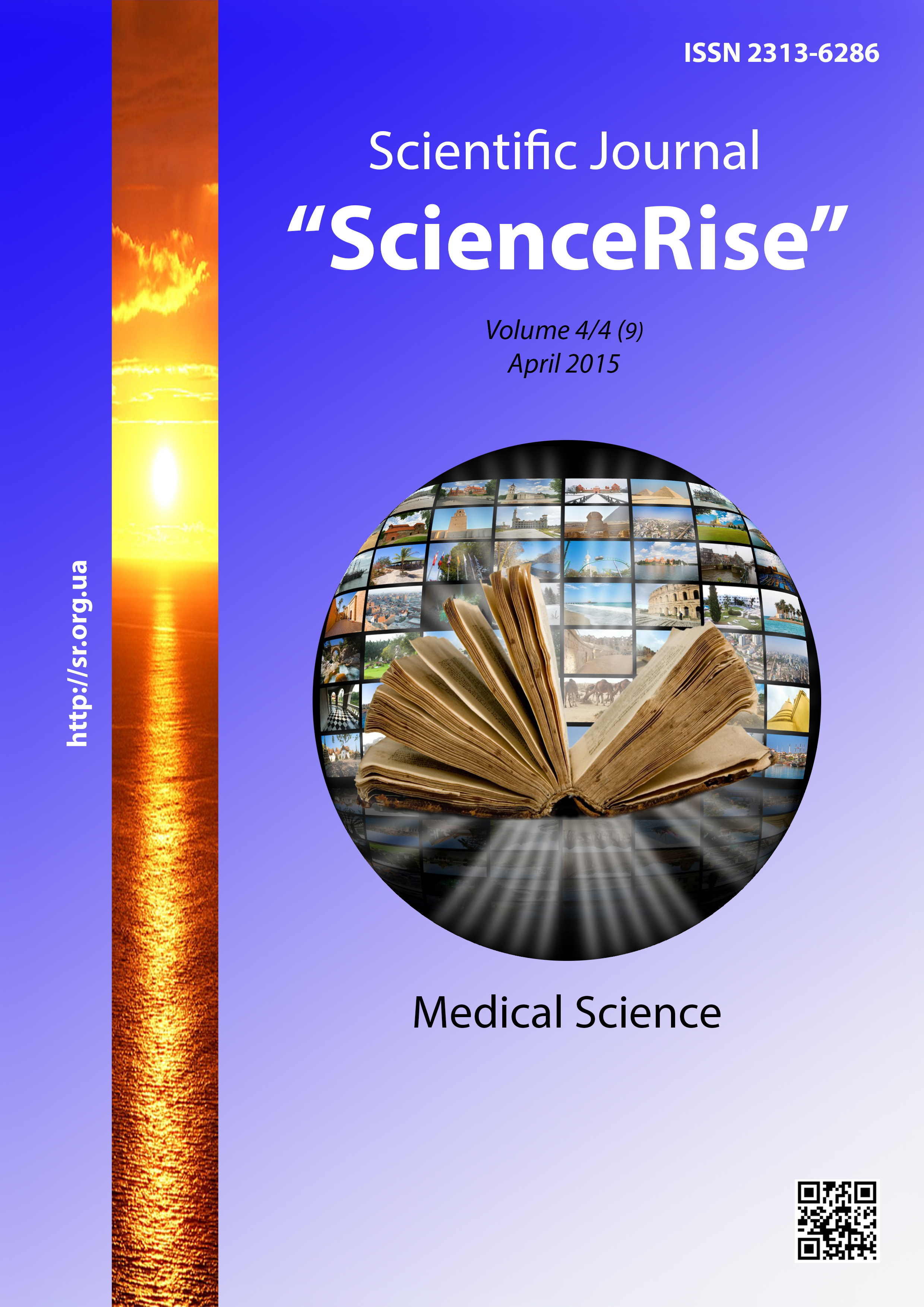Оксидативний стрес та мітохондріальна дисфункція у інфікованих вагітних
DOI:
https://doi.org/10.15587/2313-8416.2015.42080Ключевые слова:
оксидативний стрес, мітохондріальна дисфункція, материнсько-плодова інфекція, медичний озон, імунотерапіяАннотация
Метою роботи було уточнення ролі оксидативного стресу та мітохондріальної дисфункції в розвитку перинатальних ускладнень у інфікованих вагітних. Застосування імунокоректорів та озонотерапії в комплексному лікуванні МПІ є патогенетично обгрунтованим ефективним методом профілактики перинатальних ускладнень у інфікованих жінок
Библиографические ссылки
Thirsk, Y. I., Belkova, T. N., Rudakova, E. B. (2011). Medical Management of intrauterine infection. Obstetrics and ginekologiya, 8, 42–47.
Tyutyunnik, V. L., Karapetyan, T. E., Donnikov, A. E. (2013). Changes in the local and systemic immunity for opportunistic infections of the vagina in pregnant. Obstetrics and ginekologiya, 8, 25–29.
Shestakov, O. I., Podrez, L. A., Baranov, I. I. (2011). The role of endotoxin in the diagnosis of postpartum complications. Obstetrics and ginekologiya, 6, 53–57.
Voronov, I. I., Demin, T. N. (2010). Immune factors as the cause of complications of pregnancy. Zb. nauk. prats Asots. Akusha-gіnek. Ukraini. Kiev: Іntermed, 53–57.
Roly, L. V., Safronova, V. G., Matveeva, N. K., Suhih, G. T. (2010). Oxidative stress in the genesis of obstetric complications. Moscow: GEOTAR Media, 264.
Peter Stein, T., Scholl, T. O., Schluter, M. D., Leskiw, M. J., Chen, X., Spur, B. W., Rodriguez, A. (2008). Oxidative stress early in pregnancy and pregnancy outcome. Free Radic Res, 42 (10), 841–848. doi: 10.1080/10715760802510069
Raijmakers, M. T. M., Roes, E. M., Poston, L., Steegers, E. A. P., Peters, W. H. M. (2008). The transient increase of oxidative stress during normal pregnancy is higher and persists after delivery in women with pre-eclampsia. European Journal of Obstetrics & Gynecology and Reproductive Biology, 138 (1), 39–44. doi: 10.1016/j.ejogrb.2007.08.005
Karpishchenko, A. I. (2013). Medical laboratory tehnologii. Moscow: GEOTAR Media, 792.
Загрузки
Опубликован
Выпуск
Раздел
Лицензия
Copyright (c) 2015 Нана Мерабівна Пасієшвілі

Это произведение доступно по лицензии Creative Commons «Attribution» («Атрибуция») 4.0 Всемирная.
Наше издание использует положения об авторских правах Creative Commons CC BY для журналов открытого доступа.
Авторы, которые публикуются в этом журнале, соглашаются со следующими условиями:
1. Авторы оставляют за собой право на авторство своей работы и передают журналу право первой публикации этой работы на условиях лицензии Creative Commons CC BY, которая позволяет другим лицам свободно распространять опубликованную работу с обязательной ссылкой на авторов оригинальной работы и первую публикацию работы в этом журнале.
2. Авторы имеют право заключать самостоятельные дополнительные соглашения, которые касаются неэксклюзивного распространения работы в том виде, в котором она была опубликована этим журналом (например, размещать работу в электронном хранилище учреждения или публиковать в составе монографии), при условии сохранения ссылки на первую публикацию работы в этом журнале .

